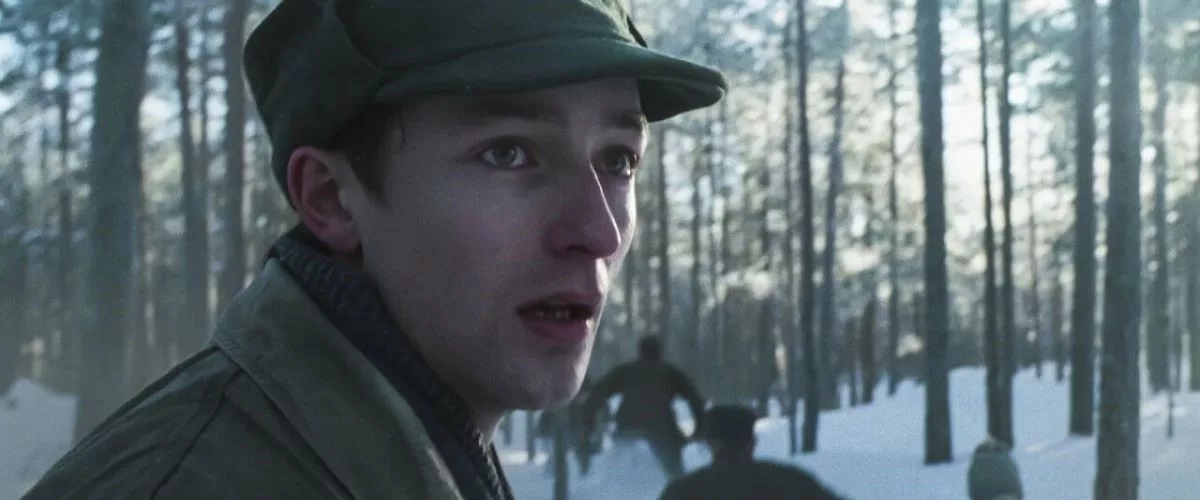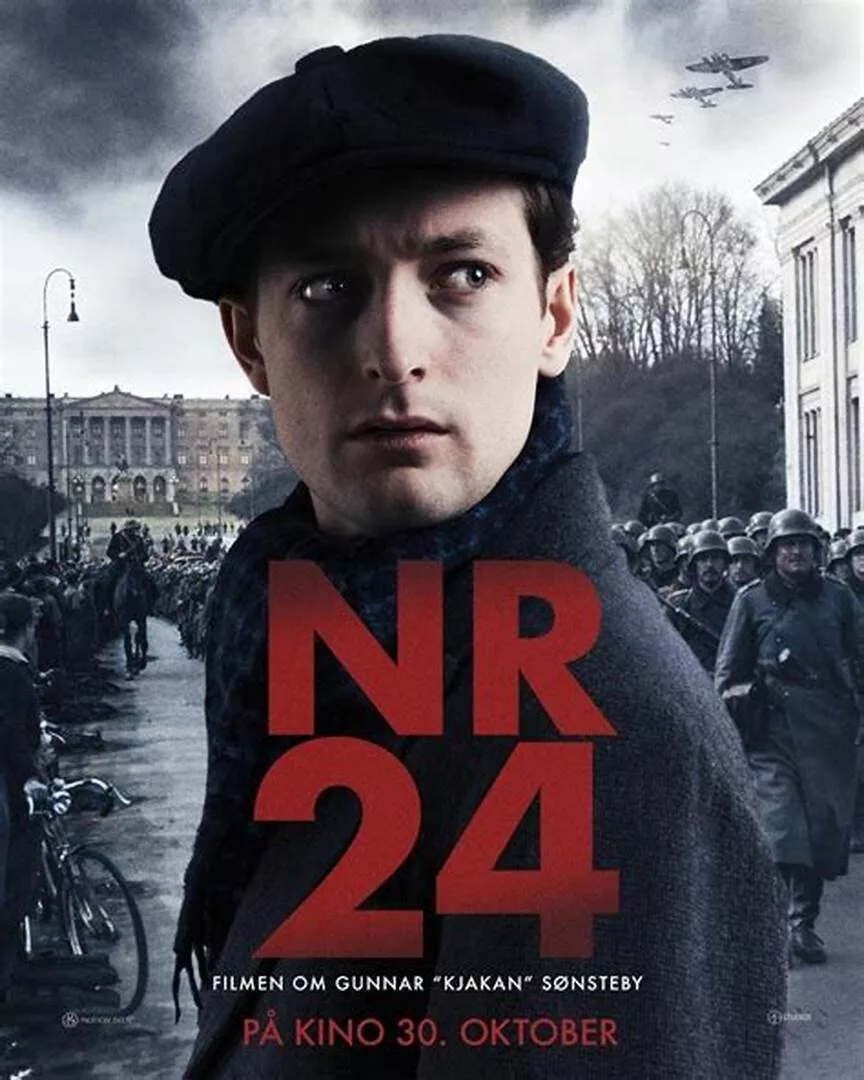Based on the real-life story of World War II resistance fighter Gunnar Sønsteby, Norwegian director John Andreas Andersen’s “Number 24” is a sturdy, handsomely mounted period piece depicting the emotional toll required for freedom. It begins with an elderly Sønsteby (Erik Hivju) preparing to speak to a group of young students in Rjukan. Andersen’s observational camera takes a documentary approach, leaning on evocative zooms to capture a nervous Sønsteby anxiously biting down on a stick before appearing on stage. He has given this speech many times, but it’s clear the accessing of these difficult memories — “the fifth drawer in his mind” as he calls it — still causes him immeasurable distress.
The framing device for “Number 24” is obvious but no less effective: Through Sønsteby’s lecture we jump back and forth from his presentation to his memories. We leap backwards to 1937 Rjukan. Sønsteby (Sjur Vatne Brean) is hiking in the mountains with his best friend Erling Solheim (Jakob Maanum Trulsen). Elsewhere, the Nazis are burning books, but only one of these men is frightened. Solheim believes the Nazis aren’t so bad; they’re only targeting communists. Sønsteby, as you can guess, has other thoughts on the matter. The ideological split between friends will fade into the background but will nevertheless be felt in every scene of this nerve-wracking drama.
Despite the intense tone of the film and its opening scene, the young Sønsteby is rarely flustered. He is a single-minded, meticulous planner whose quiet doggedness makes him an appealing recruit for Norway’s ragtag resistance. Sønsteby becomes part of the army, then becomes a publisher of anti-Nazi tracts, before finally finding his place as a spy code-named “Number 24.” Soon, Sønsteby’s high-profile missions put him in the crosshairs of the Nazis. But Sønsteby is too nimble to be caught; he possesses multiple names, multiple passports and identification papers, and innumerable apartments. It’s a nice bit of cat and mouse that Anderson doesn’t overplay. Sønsteby isn’t a charismatic figure whose tight escapes we take pleasure in. In fact, he derides his comrades for succumbing to distractions like women and drinking. Simply put: Sønsteby’s seeming unremarkable nature allows him to perform remarkable acts.
On first blush, the subject of a taciturn rebellion fighter might seem foreign to Andersen. The director is best known for helming extravagant disaster flicks like “The Burning Sea” and “The Quake.” But Norway’s Roland Emmerich knows how to push tension through expertly crafted set pieces that test the will of his characters. In this case, there are several espionage sequences where Sønsteby and his comrades are tasked with planting explosives in high-leverage targets like weapons factories. In these scenes, the fast-moving editing jostles the viewer around the multiple pieces that are required to come together to complete these missions.
A different type of apprehension affects the contemporary-set scenes. Sønsteby‘s relationship to these students isn’t a one-way street of him talking at them. They also levy questions at him, probing the morality of his wartime operations, especially the copious assassinations he took part in. Sønsteby doesn’t back down. To him, the situation is black and white; it’s either freedom or oppression. But one young woman tests his resolve, asking him a question that nearly opens every mental and emotional compartment he’s locked away over the decades. Anderson turns to a bold needle drop of Radiohead’s “Exit Music (For a Film)” that in some fashion works (it’s emotionally gripping) but also feels tonally inadequate (the anachronistic music is misplaced in such a detailed period piece).
In other parts of the film, Anderson does balance the methodical nature of this historical figure (the unhurried Trulsen is indispensable) with the charged subject matter. There are grim moments of torture and betrayals, and some surprising humor. When one student asks Sønsteby why he and his comrades didn’t follow Gandhi’s non-violent teachings rather than resorting to murder, Sønsteby frankly replies: “Gandhi didn’t face the Nazis.” That’s the closest Anderson comes to interrogating Sønsteby’s actions or his personality. Instead, the director crafts a mostly patriotic picture of a man solely dedicated to duty. It’s an uncompromising approach that often makes for a stirring watch even through a narrow lens.
On Netflix now.




















